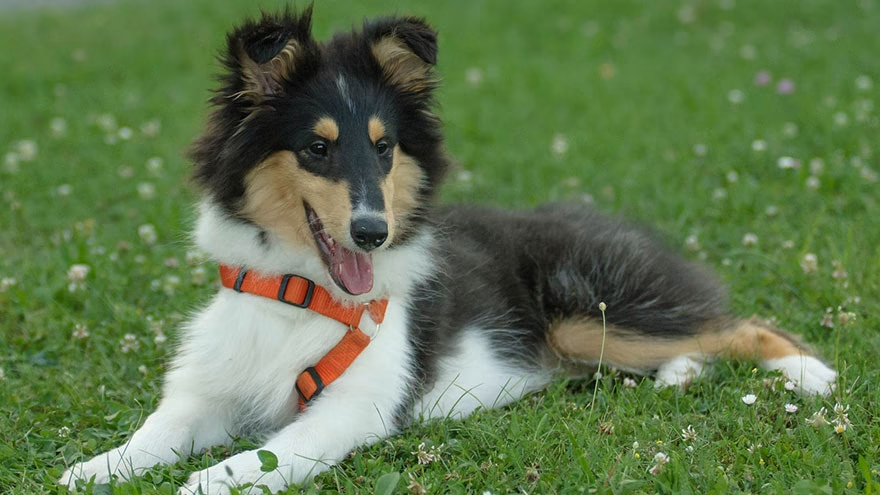German Shepherds have a certain confidence" class="auto-link" target="_blank" rel="noopener">self-confidence that comes from their intelligence and sturdiness.
Because of this, this breed makes an great watchdog and guard dogs but with the proper socialization as a puppy, it would not be overly aggressive or fierce.
How To Train German Shepherd
In recent years, poor breeding has produced some timid German Shepherds and some that are very aggressive, almost fierce. It is highly recommended that you work only with a top-quality, reputable breeder so that you get a puppy that has the right temperament to be a family companion. If home protection is one of your top considerations, a German Shepherd is an excellent choice, but you do not need to look for a particularly aggressive dog.The breed is naturally protective of home and property but the best German Shepherds are calm and open to human contact unless the situation calls for other behavior. If you need to have some formal protection/guard training, choose your trainer carefully, as particular as you would choose your breeder to ensure the experience is good for everyone involved.
The breed has been used for everything from drug detection to finding leaks in natural gas lines. In fact, one group focuses strictly on preserving the German Shepherd’s heritage as a working dog, with emphasis on protection training. This breed has a natural feel for being useful and with proper breeding and diet can exhibit a great deal of endurance in outdoor activity.
The German Shepherd is very strong, muscular, and active, which is why a loving but firm hand with training is essential.

You will find your training your German Shepherd is easier than other breeds simply because they are always eager to learn and obedient even with minimal training. Just remember to plan to spend plenty of time with your German Shepherd since this breed does not do well when left alone for long periods.
In fact, this dog is happiest if you give it a task or two, something done on a regular basis. German Shepherds were bred to be working dogs and will not shy away from outdoor exercise. Therefore, if you can work some training and obedience in with this, you will end up with a highly responsive pet.
If you have heard that German Shepherds have a reputation for being unstable in temperament, chances are you are actually hearing stories about dogs from irresponsible breeders.
Because of the popularity of many purebred dogs, such as the German Shepherd, individuals started to breed them because they knew there was money to be made from selling the puppies. Unfortunately, lack of clean living conditions, poor socialization as puppies, and inadequate training produced many of these “unstable” German Shepherds.
For this reason, it is critical that the training and socialization begin from the moment the puppy is born. Trying to change the behavior of an adult dog, especially one as intelligent and strong as a German Shepherd, can be a study in frustration. Almost any dog, if left to itself for a long time, can be destructive.
If the puppy began its life with no special attention or time spent with humans, the results can be disastrous. However, if you make sure your new dog has a good start in life, and you can be creative in your time spent with this wonderful breed, the German Shepherd is an incredible choice.
Read More About German Shepherd
- German Shepherd Breed Information
- German Shepherd : 10 Most Common Questions
- German Shepherd Health Guide
- Owning a German : Breeder Recommendations
Save for later
Found this helpful?
Pin this article to your Pinterest board and come back to it whenever you need a reminder.
Save to Pinterest


